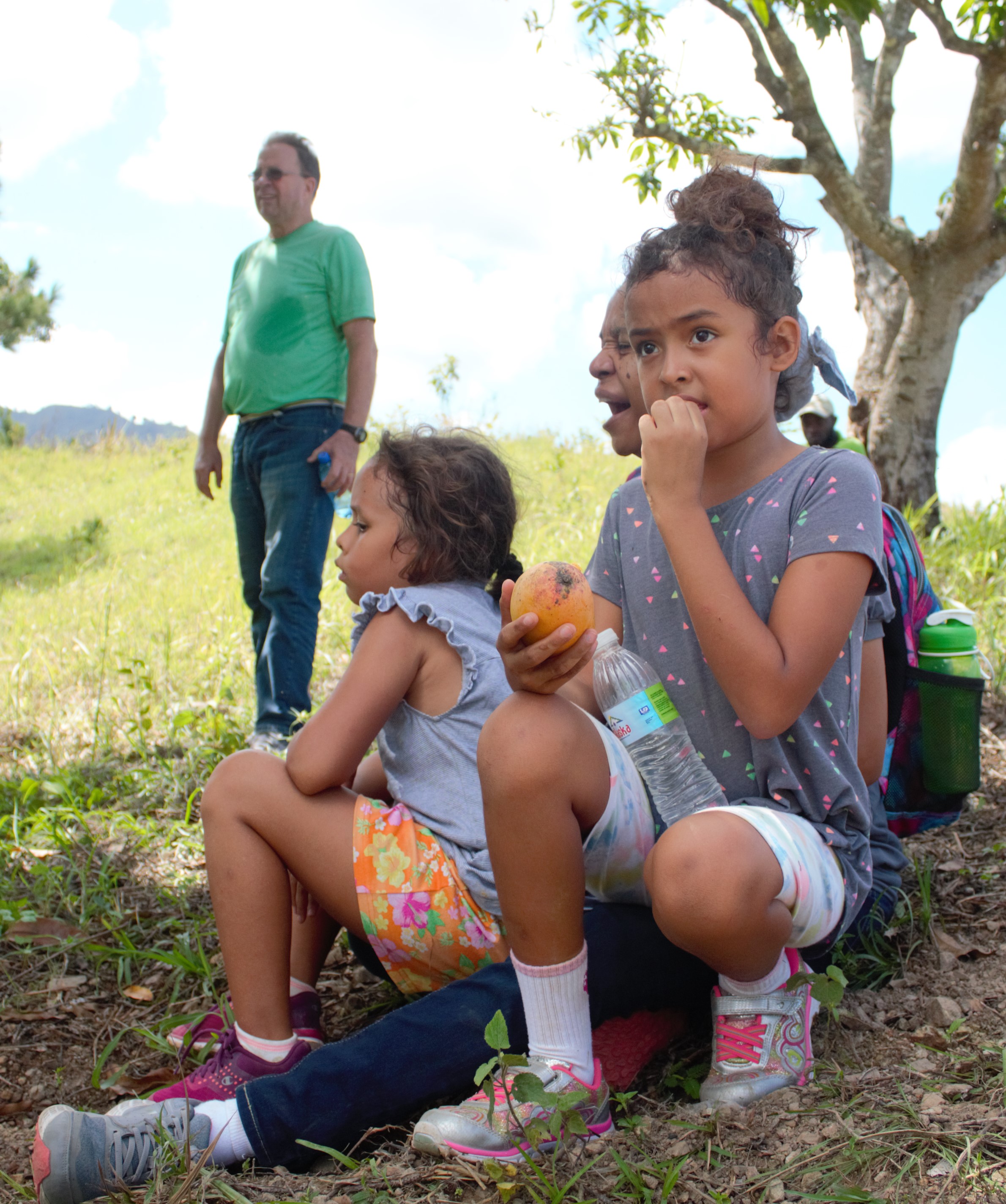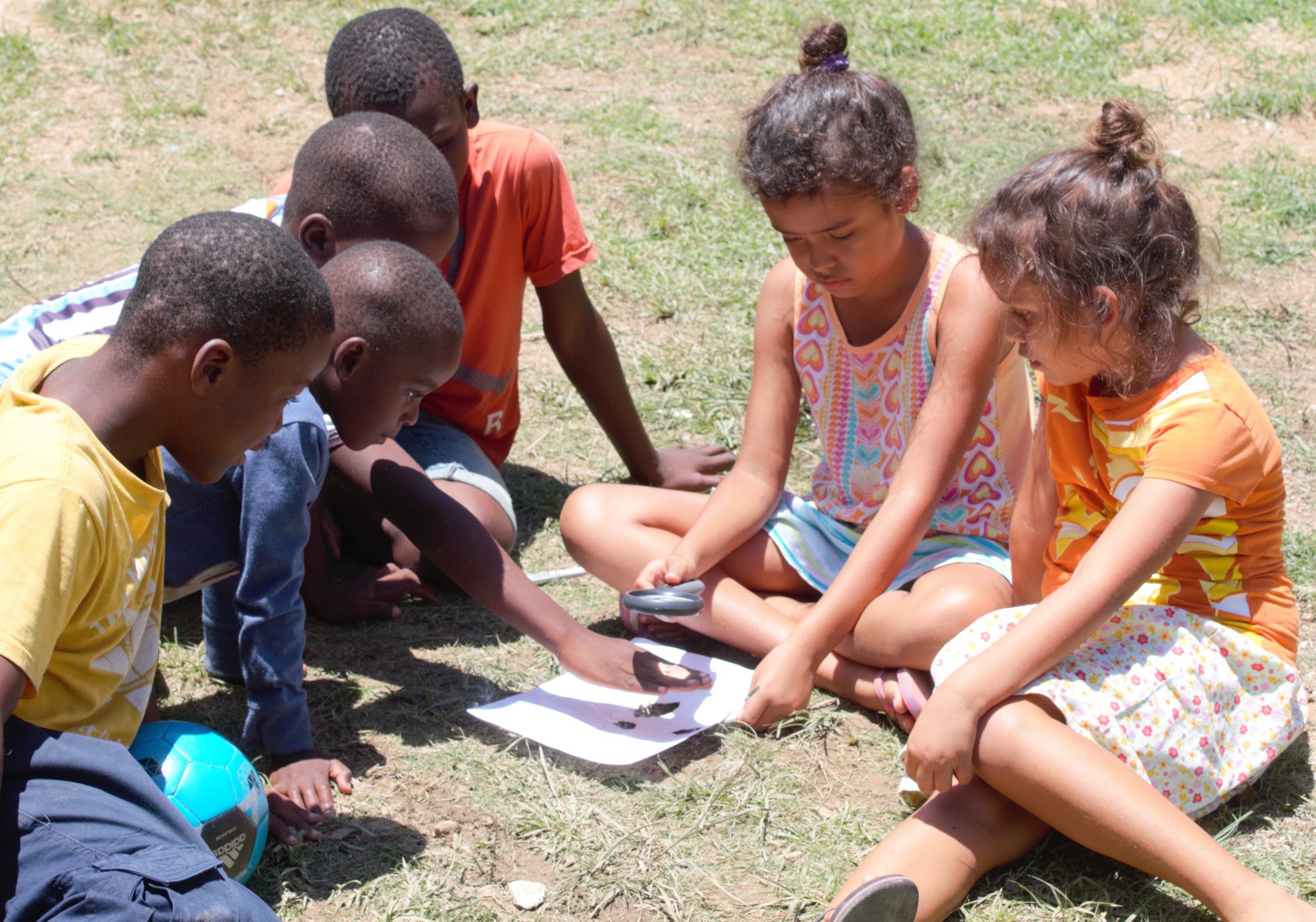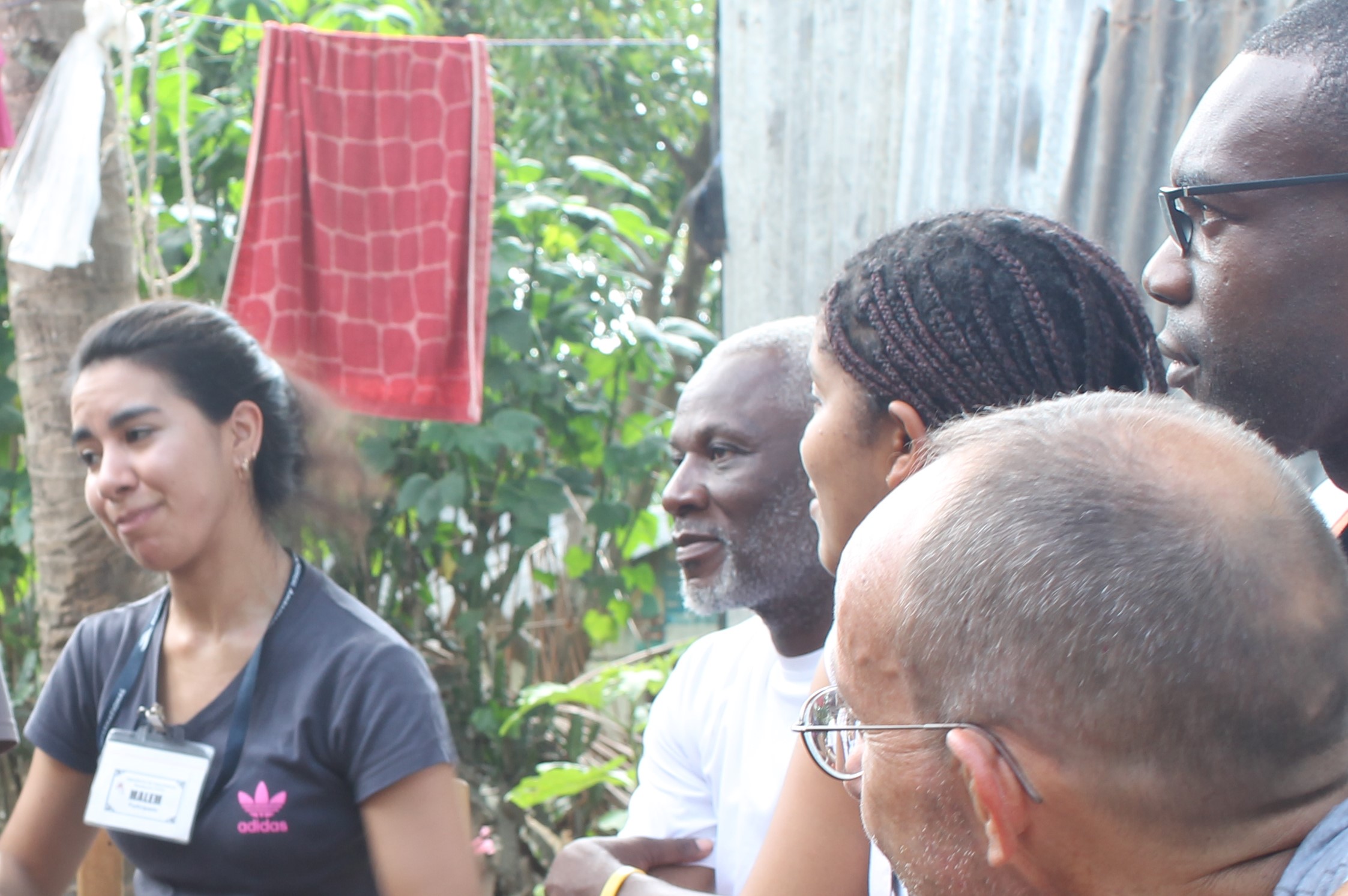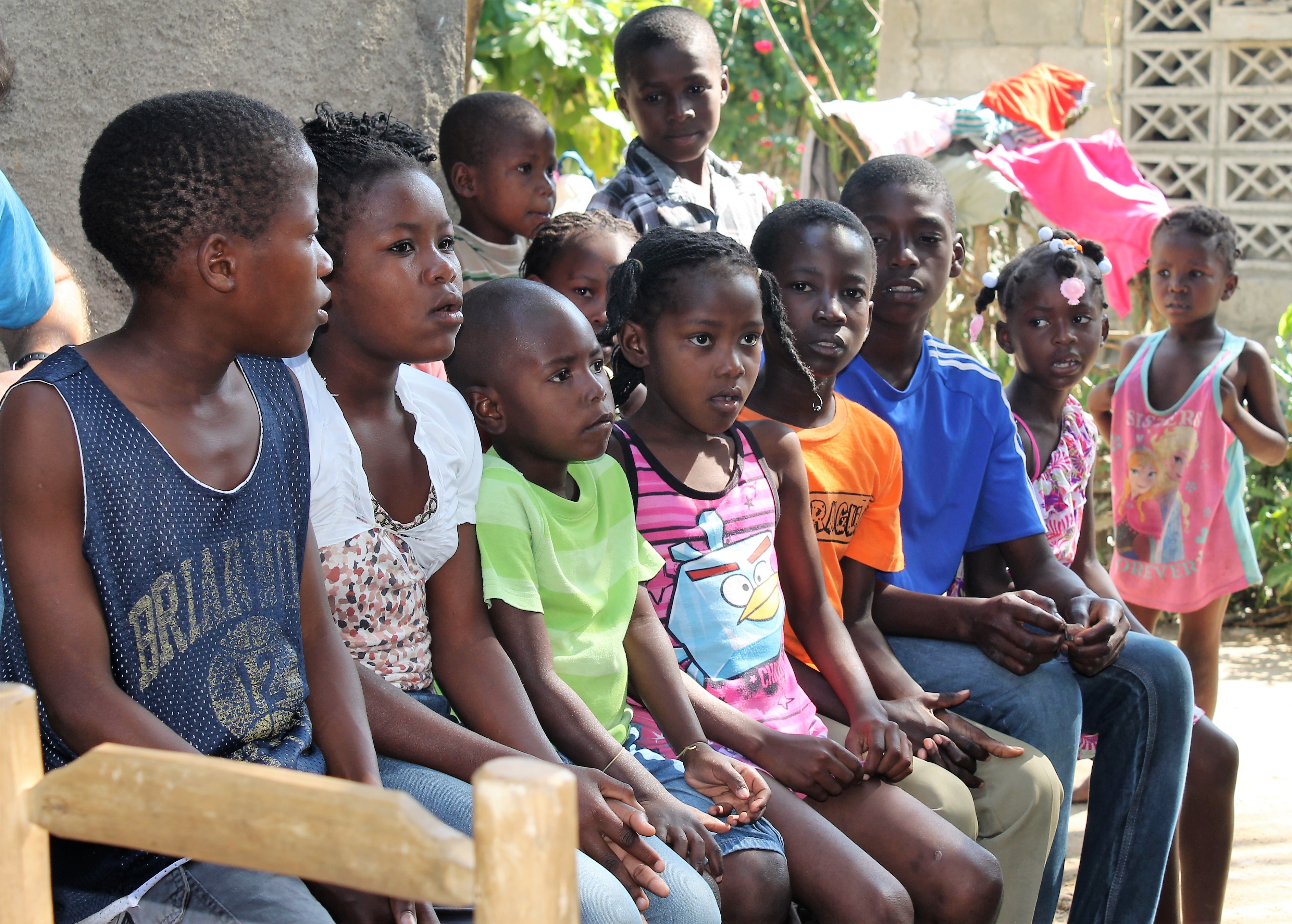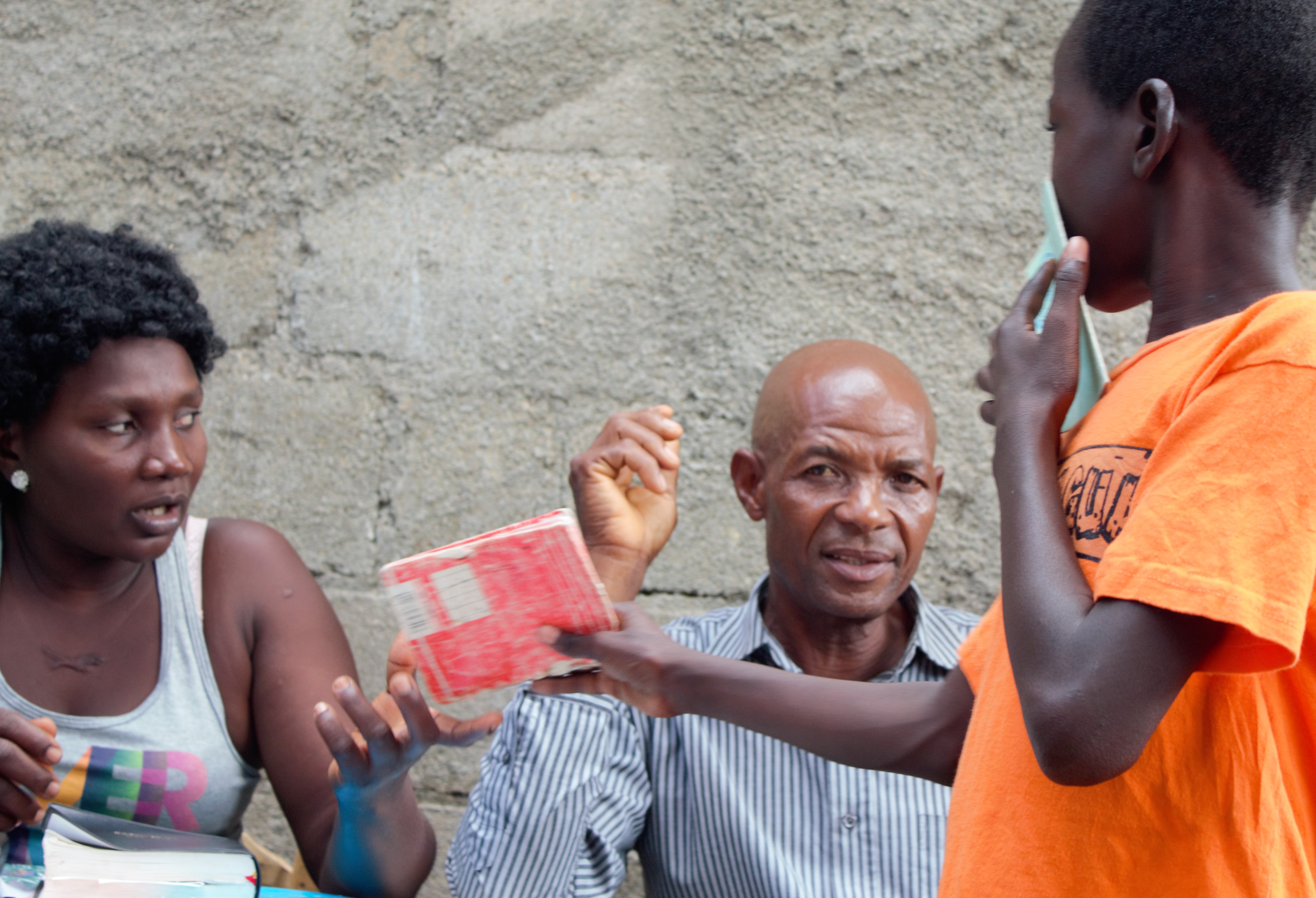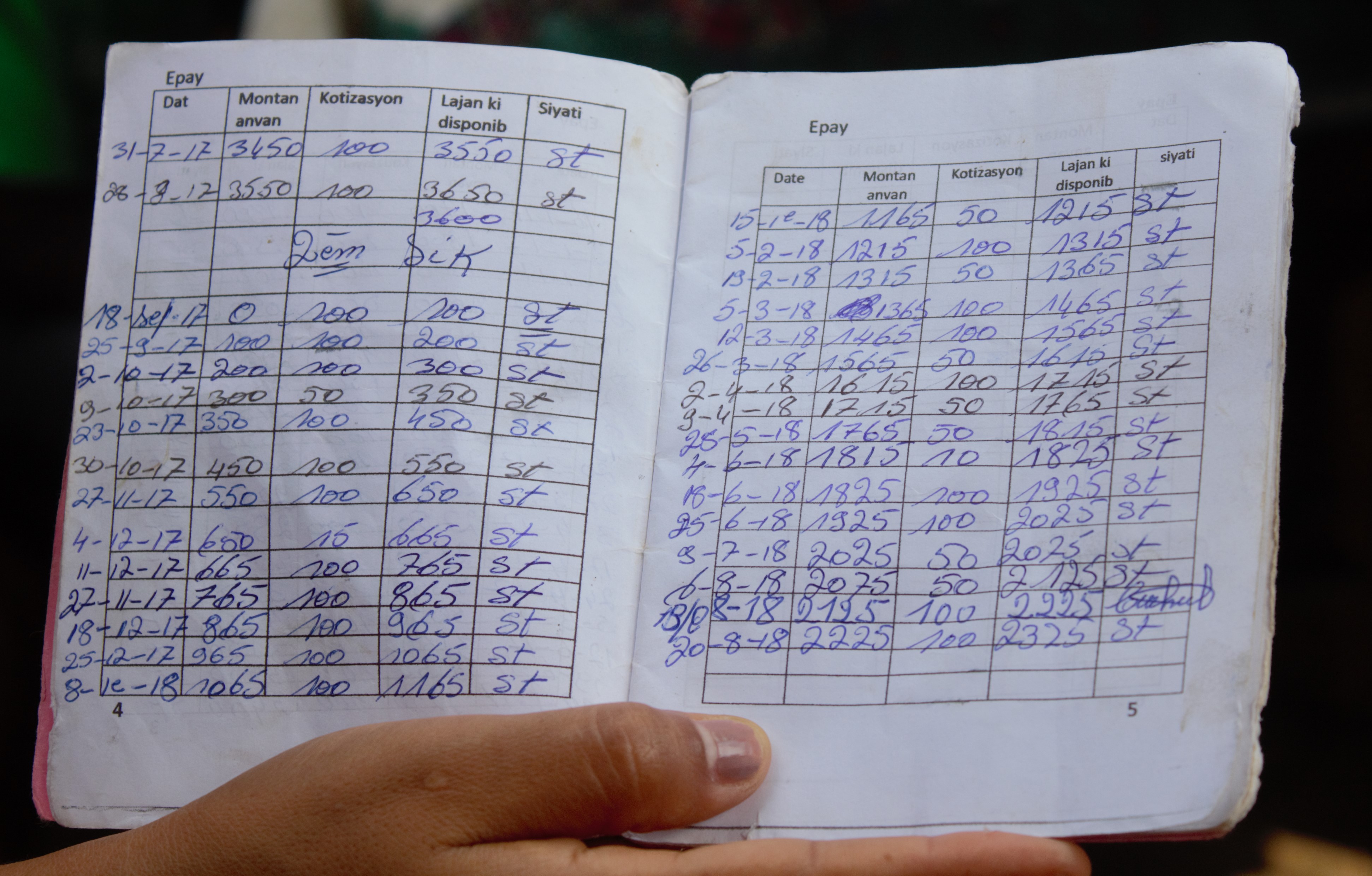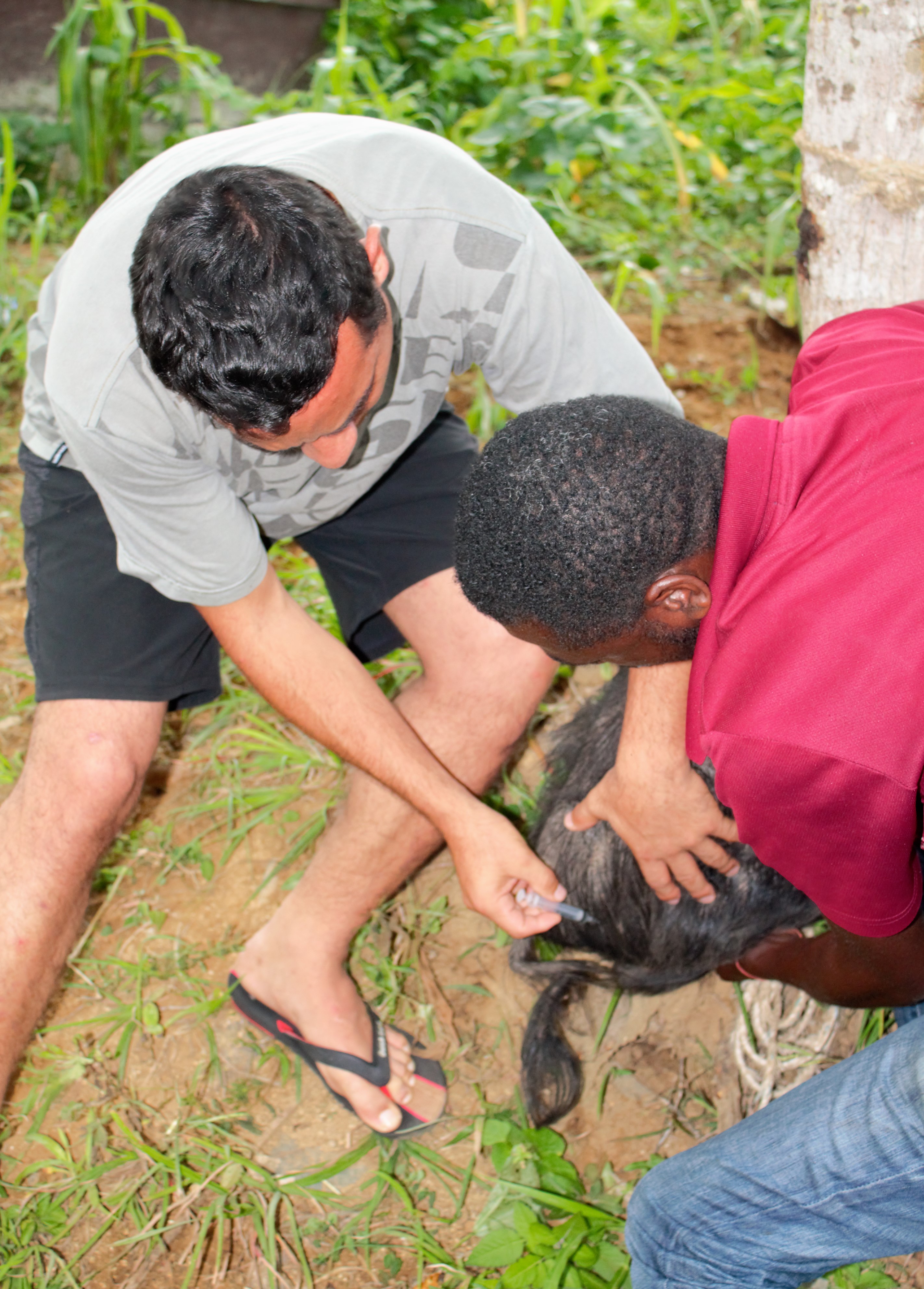A Letter from Mark Hare and Jenny Bent, serving in the Dominican Republic and Haiti
December 2018
Write to Mark Hare
Write to Jenny Bent
Individuals: Give to E200356 for Mark Hare and Jenny Bent’s sending and support
Congregations: Give to D506419 for Mark Hare and Jenny Bent’s sending and support
Churches are asked to send donations through your congregation’s normal receiving site (this is usually your presbytery)
Subscribe to our co-worker letters
Fraternal greetings from the Dominican Republic.
Annika, Keila, Mark and I arrived in the Dominican Republic in 2012 to collaborate with the Dominican Evangelical Church (IED) in its social and ministerial work. But despite our experience working with food security initiatives in Haiti, it was necessary for us to search for an appropriate process that better served the context of the IED. We eventually learned about the process of Community Health Evangelism (CHE), which is interested in the welfare and the empowerment of communities from a biblical perspective. As facilitators of the process of CHE in the Dominican Evangelical Church, we are governed by the methodology of participatory education. In our previous letters, which you may read on our Mission Connections webpage, you will find more descriptive explanations of the process.
Since our first training in 2013 as facilitators of CHE, we had missed two opportunities to participate in a training program called Training for Trainers in Residence (CDCR). Finally, this past August 22-31, we participated in CDCR for a week. Although we could not participate the whole month, we were pleased to recruit Bellanira Matos of the neighborhood of Cassandra and Juan Batista from the community of Batey 7 for a five-week residence. Both have labored with the CHE process in their respective communities.
The CDCR takes place every two to three years in the Dominican Republic, with a week of study and practice in Haiti. So, what is this training about? CHE Residence Training is an intensive five-week training that immerses participants in the total experience of CHE. It provides participants with a practical opportunity to witness the process of communities being transformed as they work alongside experienced CHE facilitators in the different stages of progress (Global CHE Network).
Mark and I had decided to intentionally integrate ourselves into the group during the week of training in Haiti. We thought it proper to join Bella and Juan for the trip because it was their first visit to the neighboring country. In addition, the team coordinator of Haiti needed the support of translation from Haitian to Spanish and vice versa. Mark facilitated the translation with a Haitian colleague from the community of Mobin Crochu. The mental work was hard, but Mark was excellent.
The adventure began at the border crossing called Dajabon on the Dominican side. We were a group of three women, five men, and our two girls (Annika and Keila). We came from different parts of the Americas: Chile, Argentina, Nicaragua, the Dominican Republic and the United States. We were all excited to go on this trip and “prepared” to face the unknown. The Dominican-Haitian border is a good example of ambiguity, chaos and disorientation. In my opinion, there is always a sense of insecurity in the border crossing. It might be because I am Latino and naturally suspicious.
We spent more than two hours getting our passports checked at the border. Osse, our host in Haiti, came early to our meeting at the border, bringing with him a driver whom he trusts. They would lead us to the community of Mombin Crochu on a journey that lasted about eight hours. Our transportation was a Toyota minibus — “a Deluxe 4 x 4”… from what year? I think that they are not manufactured anymore. To reach Mombin Crochu, we went through the savannas of Cap-Haïtien, a city in Haiti second in importance only to Port-au-Prince. A few kilometers after Cap-Haïtien, the paved road disappears and becomes rough, sloping upwards towards the mountains surrounded by greenery. It is a beautiful area, especially if you manage to take in the view from atop the Citadel Fortress.
The mechanical conditions of our transportation were questionable. On more than one occasion, we had to get out of the vehicle so it could climb the hills. The rear door that secured our suitcases opened randomly. I remember the discomfort of the environment, the hot, dusty, slow and noisy procession. As parents, we worried about the welfare of the girls, their tiredness and long hours on the road. However, Annika, seven years old, and Keila, nine years old, endured. Everyone got tired, but they were true to their intention of being in the middle of an adventure.
During our stay at Mombin Crochu, we had the opportunity to observe how the CHE promotors monitored the growth and health of children in the community. We were also afforded the opportunity to talk to boys and girls in the auto-saving group, visit the garden of a local producer and see the richness of its orchard, and practice the techniques of vaccination in poultry and the courtyard animals. All of these encounters were exemplary testimony of the progress of the community and revealed the commitment of multipliers of CHE in Haiti.
The Haitian team had scheduled a visit to the neighboring community of Mapou to have a practical lesson on vegetable beds and to talk with the local growers and multipliers of CHE in the town. But reaching Mapou was a challenge of courage and endurance. Courage because the trip was made on steep, rough, and undulating roads and through a few creeks. Endurance because we then had to walk uphill on a rustic trail, and to return we had to do the same in the rain. There were moments when Mark and I were concerned about the physical security of our girls and partners. At the time, I thought that it was poor judgment on my part to bring the girls with us. We were all physically beaten up at the end of the day. Even Mark admitted that this was one of the roughest trips he had been on.
However, the girls did not complain much. Of course, they were tired like all of us, but they enjoyed eating fresh mangoes, making some friends in the area, seeing nature closely and learning how people live in the countryside. They decided to see the dignity of people and rejoice. They were an example for the rest of the group when we adults were uncomfortable or insecure. I was very proud of them.
I was also proud of Bella and Juan because of their graciousness in every situation in which we found ourselves. They shared with us some highlights of their experience in the CDCR; they both mentioned the hands-on work in Haiti and a five-day training focused on how to start microenterprises at a community level.
I remember the camaraderie and how grateful we were for having Osse as our guide and to take care of us. I remember the patience of the Haitian team, especially in the moments we presented our complaints and criticisms. Lol, we were not an easy group.
Finally, I think that our group managed to soar to the level of family caring for each other. We recognized that we have faults and weaknesses, but we also recognized that we have talents and gifts. We put into practice what we teach as facilitators to others: God loves us in spite of all that we are.
Going to Haiti to participate in a CHE-In-Residence training was an opportunity to let us be shaped by the hands of God. It takes courage to be molded by the hands of God — in this process we confront our most difficult and painful weaknesses.
It has been a pleasure sharing this experience with you, and I hope to share more. I think that more experiences will come our way and they will rise to God because you’ve been with us in the mission. We hope that you will continue helping in the mission both financially and morally. Your participation and support are highly valued.
Please read this important message from José Luis Casal, Director, Presbyterian World Mission
Dear partners in God’s mission,
We near the close of 2018 inspired by the hope of Christ. God is transforming the world, and you are helping to make it happen.
Thank you very much for your support of our mission co-workers. The prayers and financial gifts of people like you enable them to work alongside global partners to address poverty, hopelessness, violence and other pressing problems in the name of Jesus Christ.
Every day, Presbyterian Church (U.S.A.) mission co-workers are blessed to be able to walk alongside their brothers and sisters across the globe. Listening to each other in faith and in friendship, they learn from each other how to work towards a world in which everyone flourishes. Acting upon what they discover together, PC(USA) mission co-workers and our global partners strengthen the body of Christ.
Because you are an integral part of God’s mission, I invite you to become more deeply committed to Presbyterian World Mission. First, would you make a year-end gift for the sending and support of our mission co-workers? The needs in the world are great, and World Mission is poised to answer God’s call to serve others.
I also invite you to ask your session to add our mission co-workers to your congregation’s prayer list and mission budget for 2019 and beyond. Your multi-year commitment will make a great difference in our involvement with our partners. The majority of our mission co-workers’ funding comes from the special gifts of individuals and congregations like yours, for God’s mission is a responsibility of the whole church, not a particular area of the church. Now more than ever, we need your financial support!
In faith, our mission co-workers accept a call to mission service. In faith, World Mission, representing the whole church and you, sends them to work with our global partners. In faith, will you also commit to support this work with your prayers and financial gifts? With hope and faith, I await your positive response!
At God’s service and at your service!
José Luis Casal
Director
P.S. Your gift will help meet critical needs of our global partners. Thank you!
![]() You may freely reuse and distribute this article in its entirety for non-commercial purposes in any medium. Please include author attribution, photography credits, and a link to the original article. This work is licensed under a Creative Commons Attribution-NonCommercial-NoDeratives 4.0 International License.
You may freely reuse and distribute this article in its entirety for non-commercial purposes in any medium. Please include author attribution, photography credits, and a link to the original article. This work is licensed under a Creative Commons Attribution-NonCommercial-NoDeratives 4.0 International License.
